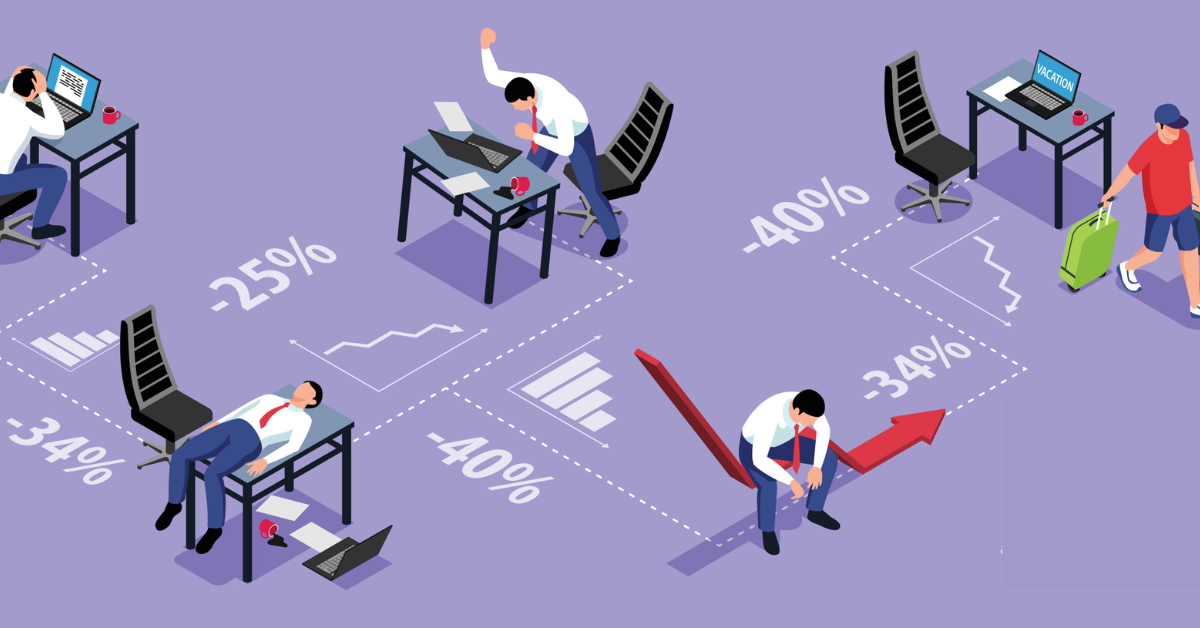What’s needed now is to treat mental health screenings on a par with routine physical checkups
Regular mental health screenings serve as an effective and stigma-free way to diagnose, prevent, and address hidden mental health issues at work
Wellbeing assessments allow companies to take proactive measures and save the company considerable time and resources that would be spent on putting out ‘crisis fires’ in the long run
Workplace stress might be at an all-time high, but there is a silver lining. In recent years, breakthrough scientific advances have given employers the tools to detect workplace stress and help their people achieve peak health and performance.
The concept of preventive healthcare is already common in the realm of physical wellness. Conscientious employers include preventive health measures in their benefits packages, such as gym memberships or medical check-ups for diabetes, hypertension, cardiovascular disease, and so on. Since there’s no stigma around any of these benefits, employees, too, are more than happy to avail of them.
What’s needed now is to treat mental health screenings on a par with routine physical checkups – as an effective and stigma-free way to diagnose, prevent, and address hidden mental health issues at work.
The Costs Of Workplace Mental Illness
Poor mental health has been correlated to a plethora of serious conditions. High stress, for instance, seems to increase the risk of obesity, diabetes, heart disease, Alzheimer’s disease, and depression, among other diseases. It also has a significant impact on individual and team productivity.
In health circles, there is a saying that goes, “If you think wellness is expensive, try illness.” The term ‘expensive’ here refers to more than just treatment costs; it also includes ‘hidden costs’ such as increased employee absenteeism or turnover, difficulties with strategic thinking and creativity, lack of focus, and so on. If not addressed on time, these factors can directly impact the bottom-line performance of a business.
Wellbeing assessments are one of the most effective organisational-level stress-reduction strategies. Using them wisely can improve employee wellbeing while simultaneously improving business performance.
What Are Wellbeing Assessments?
Wellbeing assessments are the mental health equivalent of routine physical exams. They provide companies with science-backed frameworks for identifying workplace wellness risks. They also offer roadmaps to address those risks, whether in the form of psychosocial counselling, support groups, workshops, and more.
According to management guru Peter Drucker, “what gets measured gets managed.” Wellbeing assessments enable employers to tailor their wellness initiatives and maximise their return on investment by providing data-backed insights at the organisational and team levels.
Here are five reasons why an in-depth assessment of employee emotional wellbeing is required:
Eliminates Ambiguity And Guesswork
The wellbeing assessment exercise uses questionnaires and surveys to generate data on important health parameters like stress, sleep, anxiety, depression, and resilience. This eliminates the need for employers to make approximations or guesses.
Reduces Stigma
Workplace mental health services often suffer from low utilisation rates due to the stigma attached to them. When wellbeing assessments are conducted for the entire workforce, however, no one feels singled out; after all, it is a routine exercise.
The mental trepidation of meeting a psychologist is also reduced. In fact, we have seen that meeting a psychologist as part of a routine check-up makes people more likely to reach out to a psychologist when they face a mental health challenge later on.
Provides Customised Roadmaps For Wellbeing
Emotional wellbeing assessments generate customised roadmaps for the needs of individual employees and teams. These interventions could include counselling, support groups, or workshops that are tailored to the needs of a specific individual or group. This is far more effective than, say, herding all your people into a generic yoga or stress-management workshop that may or may not be aligned to their wellbeing needs.
Works As A Proactive Measure
Many organisations do not prioritise employee wellness until it is too late. Only when attendance, productivity, or customer satisfaction fall, or when employees start resigning en-masse, do companies realise that things are getting out of hand.
However, wellbeing assessments allow companies to take proactive measures and save the company considerable time and resources that would be spent on putting out such ‘crisis fires’ in the long run. A good wellbeing partner will also provide an interactive digital dashboard that enables HR and business leaders to focus on specific data points or audiences in order to make more informed decisions.
Increases Psychological Safety
Wellbeing assessments also encourage open conversations about mental health in a transparent and psychologically safe environment. From a topic brushed under the carpet, mental health suddenly becomes front and centre for the entire team, including the leadership.
Being able to view one’s stress, sleep, resilience, or depression/anxiety risk scores makes people curious about how they can improve their scores. This spurs them to take remedial action without being judged by their colleagues or managers.
It’s Time To Take The Leap
The availability of preventive and science-based mental health assessments is great news for conscientious employers. In the aftermath of the pandemic, these tools have a major role to play in making teams and organisations healthier and more resilient and giving them a competitive edge in these uncertain times.



![Read more about the article [Funding alert] Infra.Market raises $125M from Tiger Global at $2.5B valuation](https://blog.digitalsevaa.com/wp-content/uploads/2021/08/photo-1541888946425-d81bb19240f5-1626781283222-300x165.jpg)





